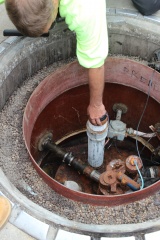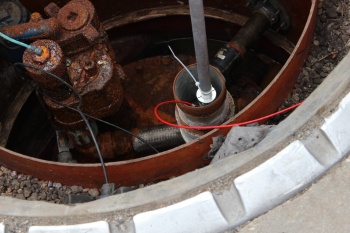NEW YORK STATE REVISED UST/AST REGULATIONS – Are you ready? Top 5 changes to the DEC PBS Regulations.
For the first time in more than 25 years, the EPA has revised its underground storage tank (UST) regulations. The updated regulations are designed to reduce the incidence and impact of the more than 6,000 releases discovered annually from USTs. The revised regulations add substantive requirements for existing USTs operated in New York. We’ve broken down the top 5 changes to help you better understand how the regulations effect you.
Questions Answered: Containment Sump Integrity Testing in Fueling Facilities
For the first time in more than 25 years, the EPA has revised its underground storage tank (UST) regulations. The updated regulations included multiple new regulatory requirements including, among others, mandatory 30-Day walkthrough inspections and required Class A, B and C Operator Training. One of the most substantive changes in the area of operational and maintenance requirements is related to Spill Prevention and Containment Sump Testing or more commonly known as ‘Sump Integrity Testing’. The purpose of which is designed to reduce the incidence and impact of the more than 6,000 releases discovered annually from USTs. The following is a guide to help shed light to the requirements and the expectations for facility owners.
We’re very excited to announce that Henrich is now certified to provide Tank and Line testing services in Suffolk County. The Alert 8200 is the only tank tightness testing method approved by the Suffolk County Department of Health Services.
Knowing whether or not your tank is regulated is the first place to start. The new regulations offer new rules for determining if your tank is regulated and what regulations apply. Some key questions include:
Before you get started….
The federal Energy Policy Act of 2005 made UST operator training mandatory for states receiving funding from the Environmental Protection Agency (EPA). In addition, section 1524 of the Energy Policy Act established the basic operator classes and definitions and tasked the EPA, in cooperation with states, with developing operator training guidelines.
What is a Class A Operator?
Class A operators:
- Manage resources and personnel;
- Maintain compliance with federal, state, and local regulations;
- Ensure that required records are kept; and
- Ensure that operators at the facility are trained to respond to releases, spills, and other emergencies.
Beginning on October 13, 2018 owners and operators must test electronic and mechanical components of their release detection equipment for proper operation at least annually using one of the following options:
- Manufacturer’s instructions
- A code of practice developed by a nationally recognized association or independent testing laboratory
- Requirements developed by the implementing agency


